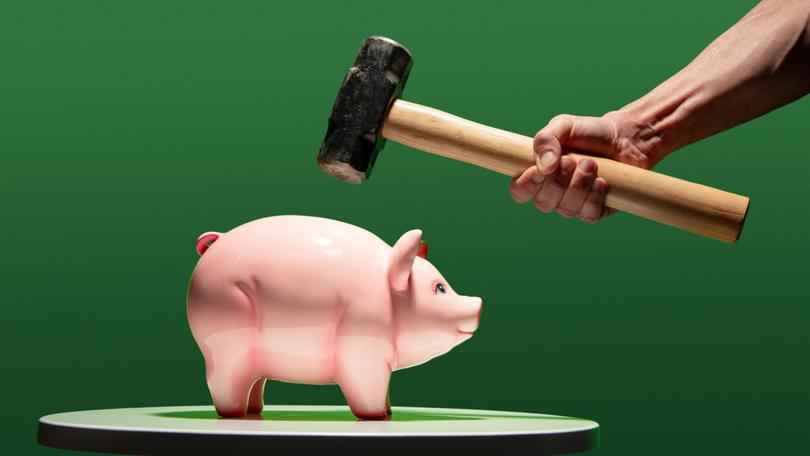Bruce Brammall: The Libs’ plan to let people rip $200,000 out of super for home deposit is a really dumb idea

Politicians, as a group, probably have a reasonably high average IQ. But some are definitely prone to showing stupidity.
I don’t think this is ever more evident than when it comes to housing policy.
It’s simple economics. If you give consumers more free money, it increases demand. If you bring in more buyers, with more money, and nothing else changes, prices increase.
Sign up to The Nightly's newsletters.
Get the first look at the digital newspaper, curated daily stories and breaking headlines delivered to your inbox.
By continuing you agree to our Terms and Privacy Policy.So, why are the Liberals trying to claim that allowing (young) people to get access to as much as $100,000 (each) from their superannuation won’t have any impact on house prices?
If you allow a couple to take $200,000 that they haven’t personally saved to help buy a home, how could you say — with a straight face — house prices would not rise?
Last week, Liberal Senator Andrew Bragg — the shadow assistant home ownership minister — was out again spruiking the Liberals’ policy.
“The reality is that if we had this policy in place tomorrow, there would be many Australians that would be able to get on to the ladder of the housing market, because they would have a deposit,” he said.
I don’t know how many people would go from not having a deposit for a home to instantly having a deposit for home if this were the case, but nationally it would probably be in the tens of thousands.
If you instantly add tens of thousands of extra buyers into the property market, who could seriously argue that it wouldn’t lead to a spike in property prices?
Not the worst
But, in my opinion, it’s not actually the worst element of the Liberals’ policy.
Buying a home is hard work. It has always involved some struggle. It’s not a right or a gift. It involves making conscious decisions on saving rather than spending, making sacrifices, eating in rather than out, spending less on things such as cars.
Sure, your superannuation is “your” money. But you haven’t personally saved it. Yes, you’ve earned it, but your employer put it there, as has been required by law since the early 1990s, for the purpose of doing something that Australians are also not very good at — saving for their retirement.
Let’s say the average required savings to buy a home is $150,000.
At any given point, there are people who have just started to begin to think about buying a home but haven’t yet committed to changing savings habits, people who have just started and have saved $10,000, others who are at $50,000 and so on, right up to those who have just hit $150,000 and are ready to buy.
Now, you allow all of these people to access up to $200,000, or $100,000 if they’re single.
Ka-boom!
Not only will all of these people be able to afford a home, but a whole bunch who had not yet even really thought about it would instantly be able to purchase.
A massive, instant, increase in demand.
The point of super is actually to provide for a better retirement. Senator Bragg claims that home ownership leads to a better retirement. Agreed.
But, as I wrote recently, some Australians are getting clever about their super and lining up how much super they have at retirement to allow them to pay out their home loan. It wasn’t what governments intended when they brought in compulsory super.
This policy could see people raiding their super early to buy a home, paying the minimum off their home until retirement, then using the rebuilt super to pay off their remaining loan when they stop working.
Their employers and the taxpayer — through government superannuation tax concessions — will have done most of the hard yards in buying this home.
Super savers
When former prime minister Kevin Rudd first introduced a super savers scheme for home ownership, it was an unmitigated disaster of a policy.
The current version, around since about 2017, makes far more sense.
Extra money into super — salary sacrifice or personal contributions — will get a tax benefit and can be invested with the tax benefits of super. And that money, up to $15,000 a year of contributions and up to $50,000 (each) can be withdrawn to buy a house.
It requires a conscious decision to sacrifice and save. It won’t be as popular with younger voters. But it also is far less likely to cause a spike in property prices.
Bruce Brammall is the author of Mortgages Made Easy and is both a financial adviser and mortgage broker. bruce@brucebrammallfinancial.com.au
